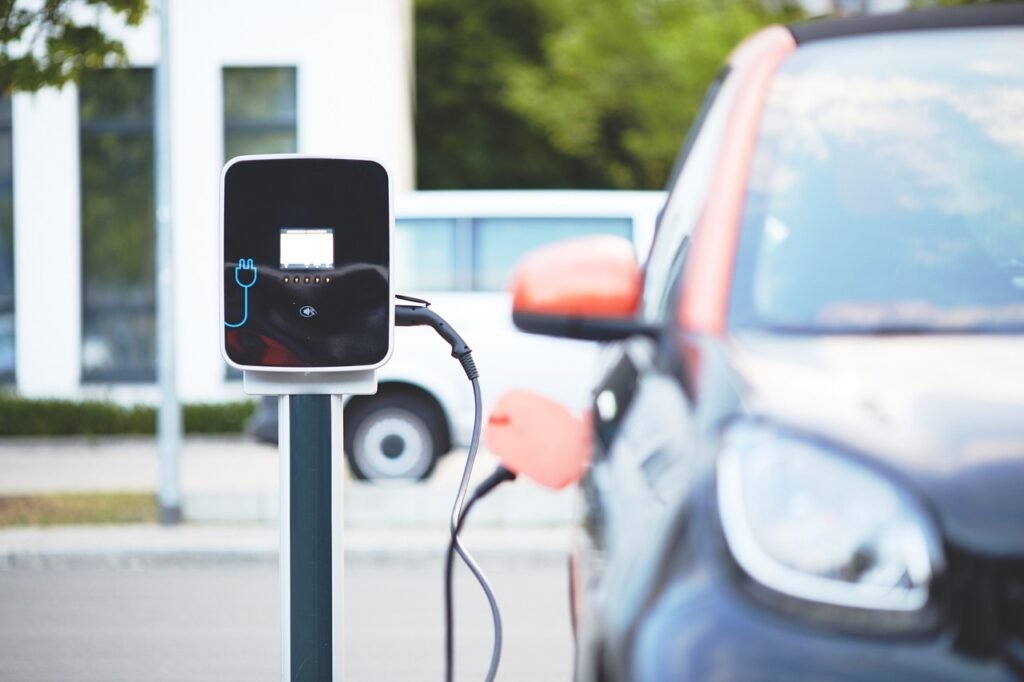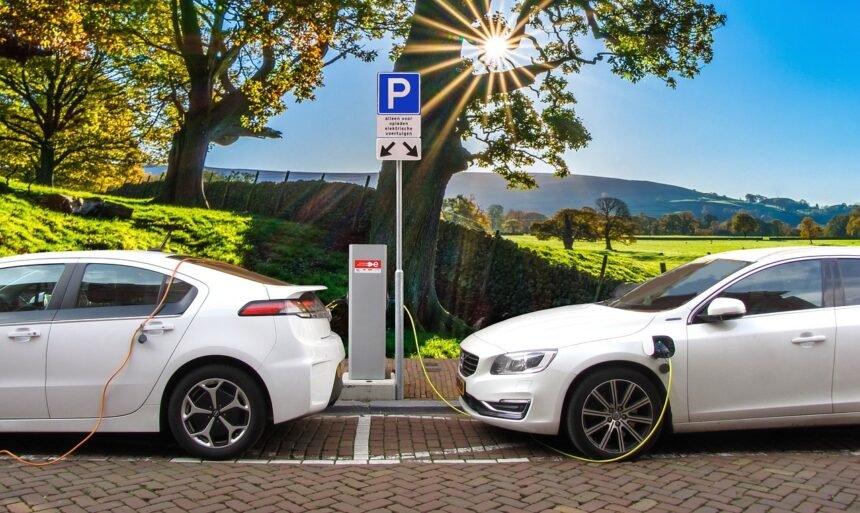Have you ever wondered whether electric vehicles (EVs) are truly as environmentally friendly as they seem? With the surge in popularity of electric cars, there’s been a growing debate about their actual impact on the planet. While they promise a greener future, it’s crucial to take a deeper look at how these vehicles affect our environment.
In this article, we’ll dive into the environmental impact of electric vehicles, breaking down both the benefits and the challenges. We’ll explore how EVs measure up compared to traditional gasoline-powered cars, and whether they are the solution to our environmental concerns. So, let’s get started and uncover the truth behind the hype surrounding electric vehicles!
The Positive Environmental Impact of Electric Vehicles
1. Reduced Greenhouse Gas Emissions
One of the most significant environmental benefits of electric vehicles is their potential to reduce greenhouse gas emissions. EVs don’t rely on fossil fuels, meaning they produce zero tailpipe emissions. This helps decrease air pollution and improves air quality, particularly in urban areas.
- Fact: According to the U.S. Environmental Protection Agency (EPA), the transportation sector is the largest contributor to greenhouse gas emissions in the U.S., responsible for 29% of the total.
With an electric vehicle, you immediately eliminate the emissions typically produced by gasoline or diesel engines. The reduced carbon footprint is one of the top reasons environmental advocates promote EV adoption.
2. Increased Efficiency
Electric vehicles are generally more energy-efficient than internal combustion engine (ICE) vehicles. EVs convert over 77% of the electrical energy from the grid to power the wheels, while conventional gasoline vehicles only convert about 12%–30% of the energy stored in gasoline to power the wheels.
Table: Comparison of Energy Efficiency Between EVs and Gasoline Vehicles
| Vehicle Type | Energy Efficiency (%) |
|---|---|
| Electric Vehicles (EVs) | 77% |
| Gasoline Vehicles | 12-30% |

This greater efficiency translates to less energy wastage and a lower overall environmental impact from the same amount of energy.
3. Less Dependence on Fossil Fuels
Since EVs run on electricity, they help reduce our dependence on fossil fuels like oil and natural gas. As renewable energy sources like wind, solar, and hydropower become more prevalent, the electricity that powers EVs will increasingly come from clean energy sources, further diminishing the environmental impact.
4. Quieter Operation
Electric vehicles are much quieter than conventional cars, contributing to reduced noise pollution. In busy cities, this means less stress for inhabitants and improved quality of life.
The Hidden Environmental Costs of Electric Vehicles
While electric vehicles offer numerous advantages, it’s also important to consider their environmental costs that often go unnoticed.
1. Battery Production Impact
The heart of any electric vehicle is its battery, and producing these batteries has a significant environmental cost. Lithium, cobalt, and nickel are key materials used in EV batteries, and their extraction can lead to severe environmental degradation.
- Lithium mining, for example, uses vast amounts of water, which can disrupt local ecosystems and deplete freshwater supplies in areas where water is already scarce.
- Cobalt mining is another major issue. Around 60% of cobalt comes from the Democratic Republic of Congo, where mining often involves poor labor practices, including child labor, along with environmental harm.
2. Energy Source for Charging
While electric vehicles themselves don’t produce emissions, the source of the electricity used to charge them plays a critical role in determining their environmental impact. If the electricity is generated from coal or natural gas plants, the overall environmental benefits of driving an EV can be greatly reduced.
3. Battery Disposal and Recycling
As the EV market grows, so will the need to recycle or safely dispose of batteries. EV batteries contain hazardous materials that can harm the environment if not properly handled. While battery recycling technologies are improving, they are still in their infancy, meaning there’s a looming problem with potential battery waste.
Solutions to Reduce the Environmental Impact of Electric Vehicles
1. Sustainable Battery Production
One of the most promising ways to mitigate the environmental harm of EVs is through more sustainable battery production. Companies are developing new technologies that reduce the need for harmful materials like cobalt and improve recycling processes.
- Solid-state batteries are an exciting advancement, offering higher energy densities and improved safety with less environmental harm.
2. Renewable Energy for Charging
Maximizing the environmental benefits of electric vehicles requires a clean energy grid. The transition to renewable energy sources like solar, wind, and hydropower for generating electricity will drastically reduce the carbon footprint of EVs.
- Fact: In 2020, about 20% of U.S. electricity generation came from renewable energy sources. By expanding renewable energy infrastructure, we can ensure that charging an EV becomes truly eco-friendly.
3. Battery Recycling Programs
A focus on creating efficient battery recycling programs is essential. By recovering valuable materials from used batteries, we can reduce the demand for mining raw materials and minimize environmental harm.
- Current Initiatives: Companies like Redwood Materials are already leading the way in battery recycling, recovering materials from used batteries to be used in new ones, significantly cutting down waste.
Electric Vehicles vs. Gasoline Cars: Which Is Better for the Environment?
Short-Term vs. Long-Term Impact
In the short term, the environmental benefits of an EV can be diminished by the energy-intensive process of producing the vehicle and its battery. However, over the long term, electric vehicles tend to be much better for the environment compared to gasoline-powered cars. The longer an EV is driven, the more its environmental impact decreases, especially if it’s charged using renewable energy.
Table: Comparison of Environmental Impact Over Vehicle Lifespan
| Vehicle Type | Short-Term Impact (Production) | Long-Term Impact (Use) |
|---|---|---|
| Electric Vehicles (EVs) | High | Low |
| Gasoline Vehicles | Moderate | High |
FAQs About the Environmental Impact of Electric Vehicles
Q: Do electric vehicles really reduce pollution?
A: Yes, EVs produce zero tailpipe emissions, which significantly reduces air pollution in urban areas. However, the environmental benefit depends on the energy source used for charging and the materials used in production.
Q: Is producing EV batteries harmful to the environment?
A: Producing EV batteries can have a high environmental impact due to the mining of materials like lithium and cobalt. However, advancements in battery technology and recycling can mitigate some of these issues.
Q: What happens to electric car batteries at the end of their life?
A: Currently, most EV batteries are recycled or repurposed for other uses. However, the recycling process needs to improve to handle the growing number of EV batteries reaching the end of their life.
Q: How can I reduce the environmental impact of owning an EV?
A: To minimize your EV’s environmental footprint, consider using renewable energy sources for charging, participate in recycling programs, and opt for vehicles with sustainable batteries.
Conclusion
So, are electric vehicles the solution to our environmental concerns? The answer is complex. While they offer significant benefits, such as reduced emissions and greater energy efficiency, the environmental impact of electric vehicles depends heavily on factors like battery production, energy sources for charging, and recycling processes.
To truly unlock the potential of electric vehicles as a green solution, we need to continue advancing technologies in sustainable battery production, clean energy, and recycling. As individuals, we can contribute by making informed choices about the energy we use to charge our cars and supporting companies that prioritize environmental sustainability.
Electric vehicles have the power to drive us toward a cleaner future—if we handle the challenges responsibly.









